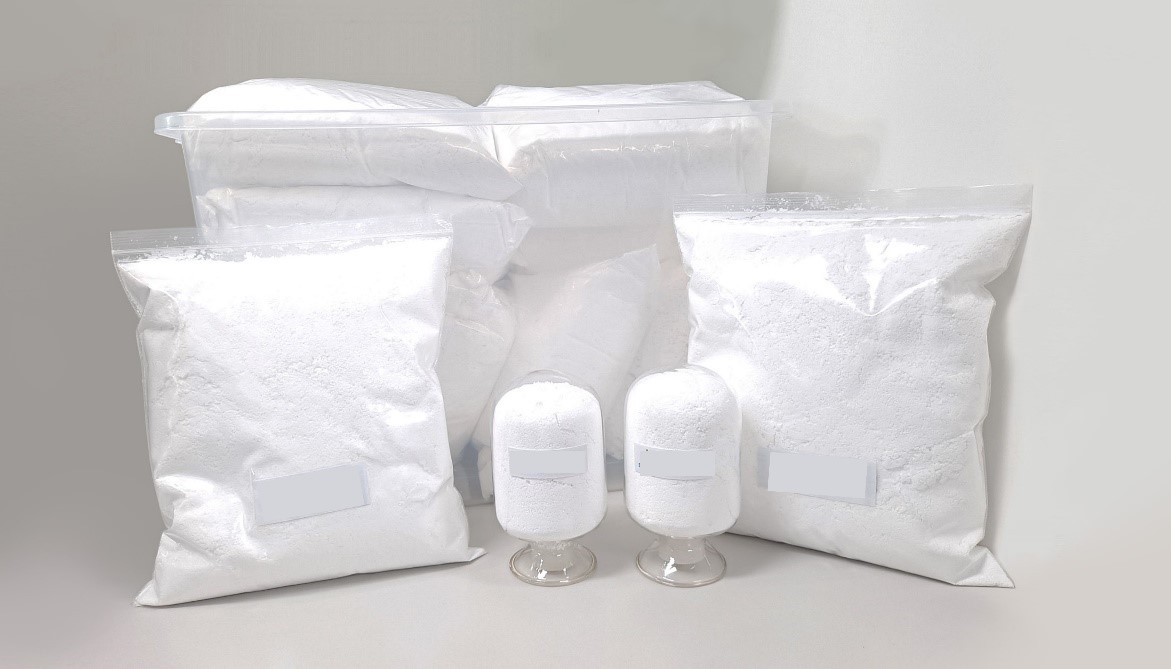Summary
- Profile Type
- Technology offer
- POD Reference
- TOKR20241016001
- Term of Validity
- 25 October 2024 - 25 October 2025
- Company's Country
- South Korea
- Type of partnership
- Commercial agreement with technical assistance
- Research and development cooperation agreement
- Targeted Countries
- All countries
Contact the EEN partner nearest to you for more information.
Find my local partner
General information
- Short Summary
- A Korean startup has developed cellulose nanofibers surface-modified with inorganic materials. It has improved dispersibility and thermal stability so it can be used for plastic composites for automobile parts and home appliances. It shows improved mechanical properties such as tensile strength and impact strength, and even has flame retardation effects with no additional flame retardants. The company seeks cooperation partners under commercial or R&D cooperation.
- Full Description
-
To solve pollutions caused by plastic use and increase recycling rates, a Korean SME has developed a new cellulose nanofibers surface-modified with inorganic materials. The company was founded in 2018 by an university professor based on over ten years of his researches on nanomaterial applications such as cellulose nanofibers.
These new cellulose nanofibers are surface-modified with inorganic nanomaterials like silica particles. The company’s precise control binds the different-sized silica particles to the surface of the cellulose fibers. Due to this surface coating effect, the dispersion and thermal stability of the new materials have improved. Based on this technology, powder and liquid-type products have been developed in 8 grades that can be used for plastic composites to express specific industrial properties.
These new materials contribute to increase tensile, flexural and impact strength and improve UV resistance, abrasion resistance, and dimensional stability. Also, their fibrous silica network protects plastics against flame, so additional flame retardants are not needed. These new materials can overcome existing plastics’ problems including aggregation, thermal oxidation, strength degradation, and discolouration.
These new materials can be reused for dispersion without degrading their physical properties. Even in the production process, harmless water and alcohol solvents are used. Thus, they can minimize ecological footprints and replace plastics in industries such as automobile parts, home appliances, battery separators, and so on. The company is currently in need of scaling up for mass production and establishing an automotive system.
The Korean company seeks partners to cooperate for commercialization or PoC tests under commercial agreement with technical assistance and R&D cooperation agreement. Patents have been registered in Korea, US and a European patent is in progress. - Advantages and Innovations
-
- The company's non-toxic silica layer-coated cellulose nanofibers have relatively finer powders and improve polymer complexes' dispersibility. They can also be re-dispersed more than 6 times without deteriorating their physical properties
- This new material has shown an increased thermal oxidation resistance as discolouration wasn't present in a test conducted at 200°C for 12 hours
- By using this material, mechanical properties such as tensile, flexural, and impact strengths have improved. Also, this has flame retardation effects on plastic without using flame retardants
- Harmless water and alcohol solvents are used in production process to minimize environmental impacts. This eco-friendly materials can be applied to various plastics including PP, PE, PA6, ABS - Stage of Development
- Available for demonstration
- Sustainable Development Goals
- Goal 13: Climate Action
- IPR status
- IPR applied but not yet granted
Partner Sought
- Expected Role of a Partner
-
- Commercial agreement with technical assistance: Companies interested in applying the Korean company's new material for various applications, or required for reinforced plastics for industries such as automotive parts, battery separators, household appliances and so on.
- Research and development cooperation agreement: Companies and research institutes with expertise in plastics. Notably, advanced technology and knowledge applicable to extruding and injecting eco-friendly materials such as mineralized cellulose nanofibers with plastics and enhancing mechanical properties for industries like automotive parts, household appliances, and battery separators are sought. - Type and Size of Partner
- Big company
- R&D Institution
- SME 50 - 249
- Type of partnership
- Commercial agreement with technical assistance
- Research and development cooperation agreement
Dissemination
- Technology keywords
- 02007024 - Nanomaterials
- 06006006 - Biological Nanomaterials
- 02007005 - Composite materials
- 10003004 - Recycling, Recovery
- 06006002 - Bioplastics
- Market keywords
- 08001018 - Polymer (plastics) materials
- 08001004 - Fibre-reinforced (plastic) composites
- 09001005 - Motor vehicles, transportation equipment and parts
- 08001006 - Processes for working with plastics
- Sector Groups Involved
- Mobility - Transport - Automotive
- Targeted countries
- All countries
